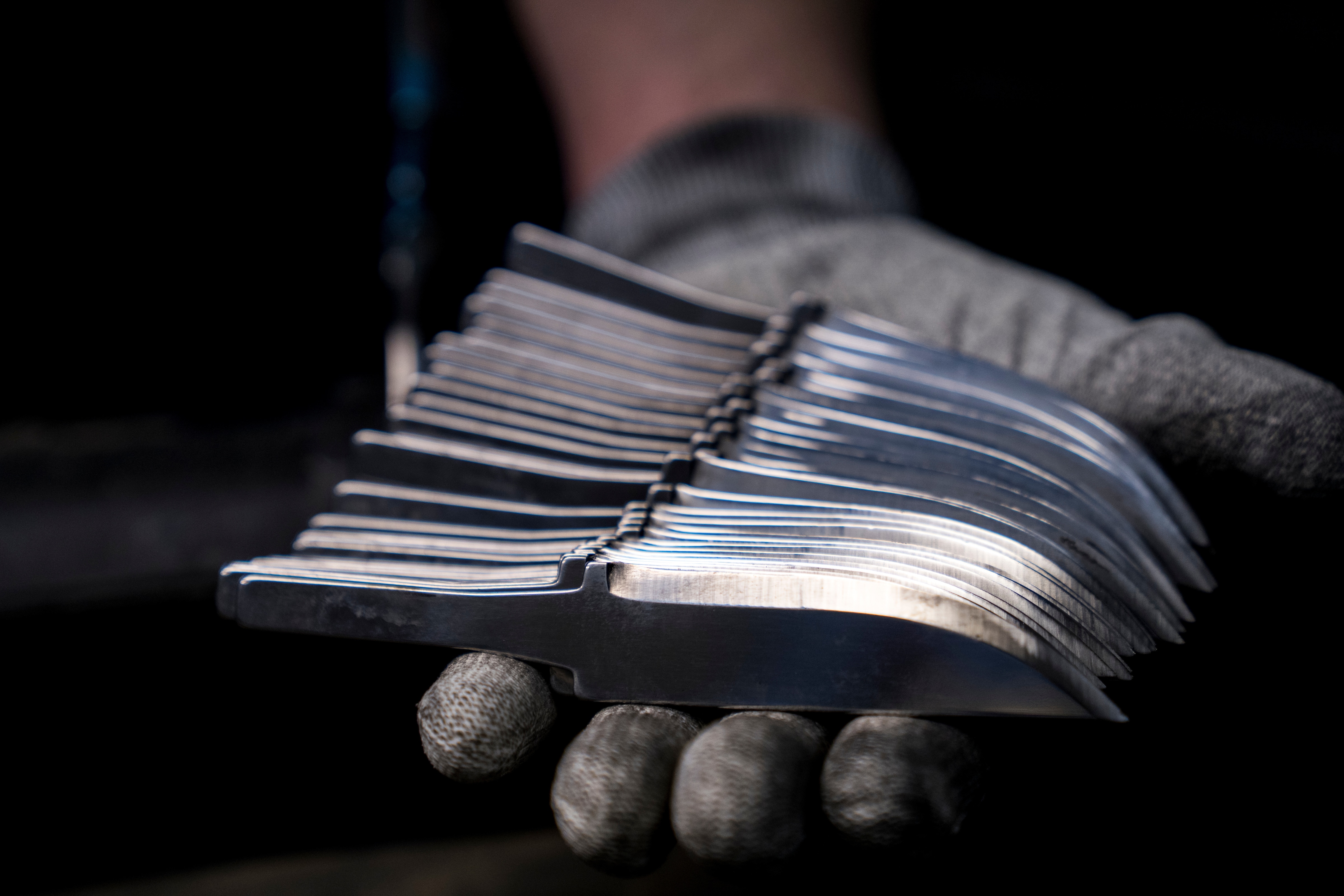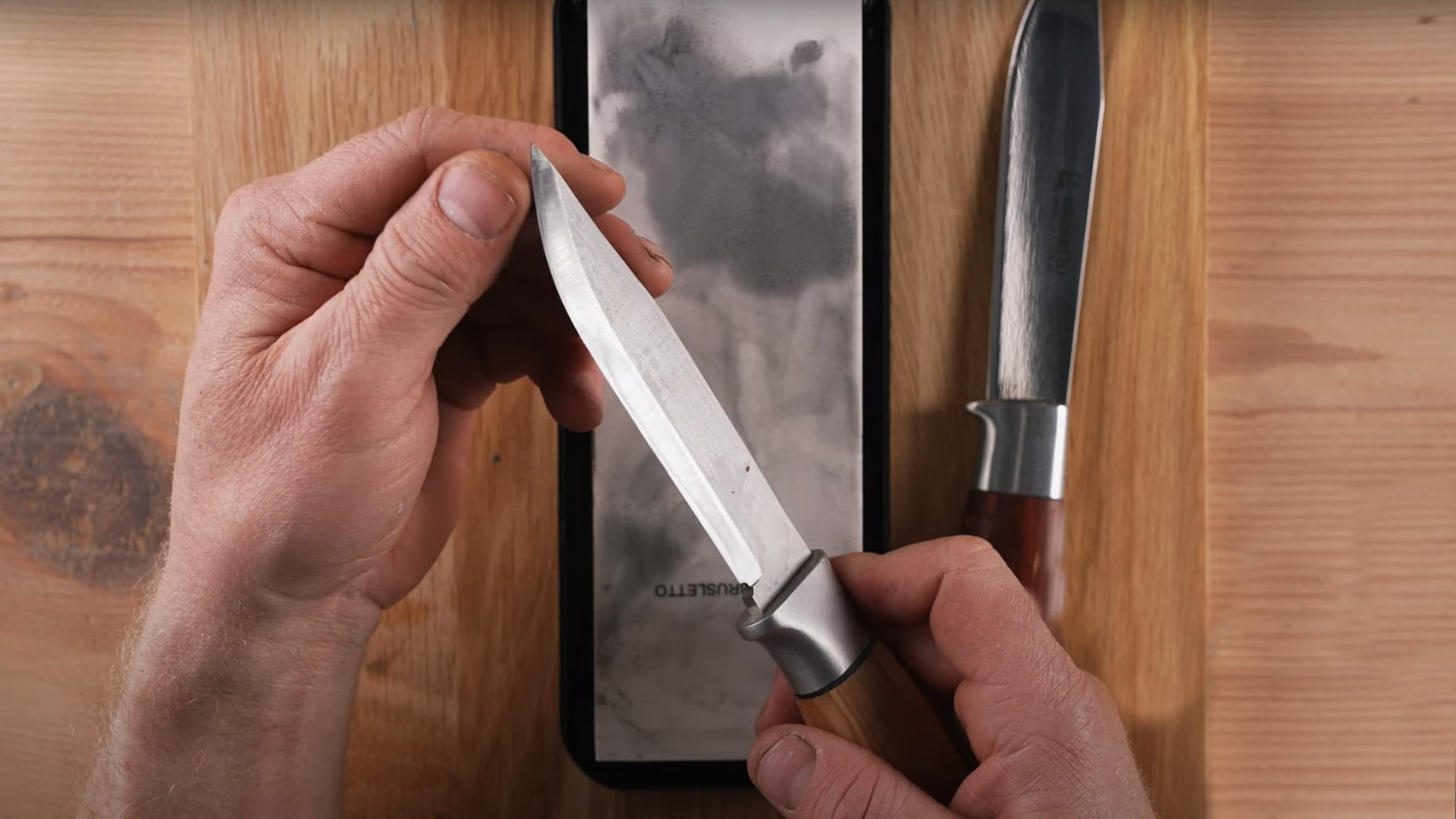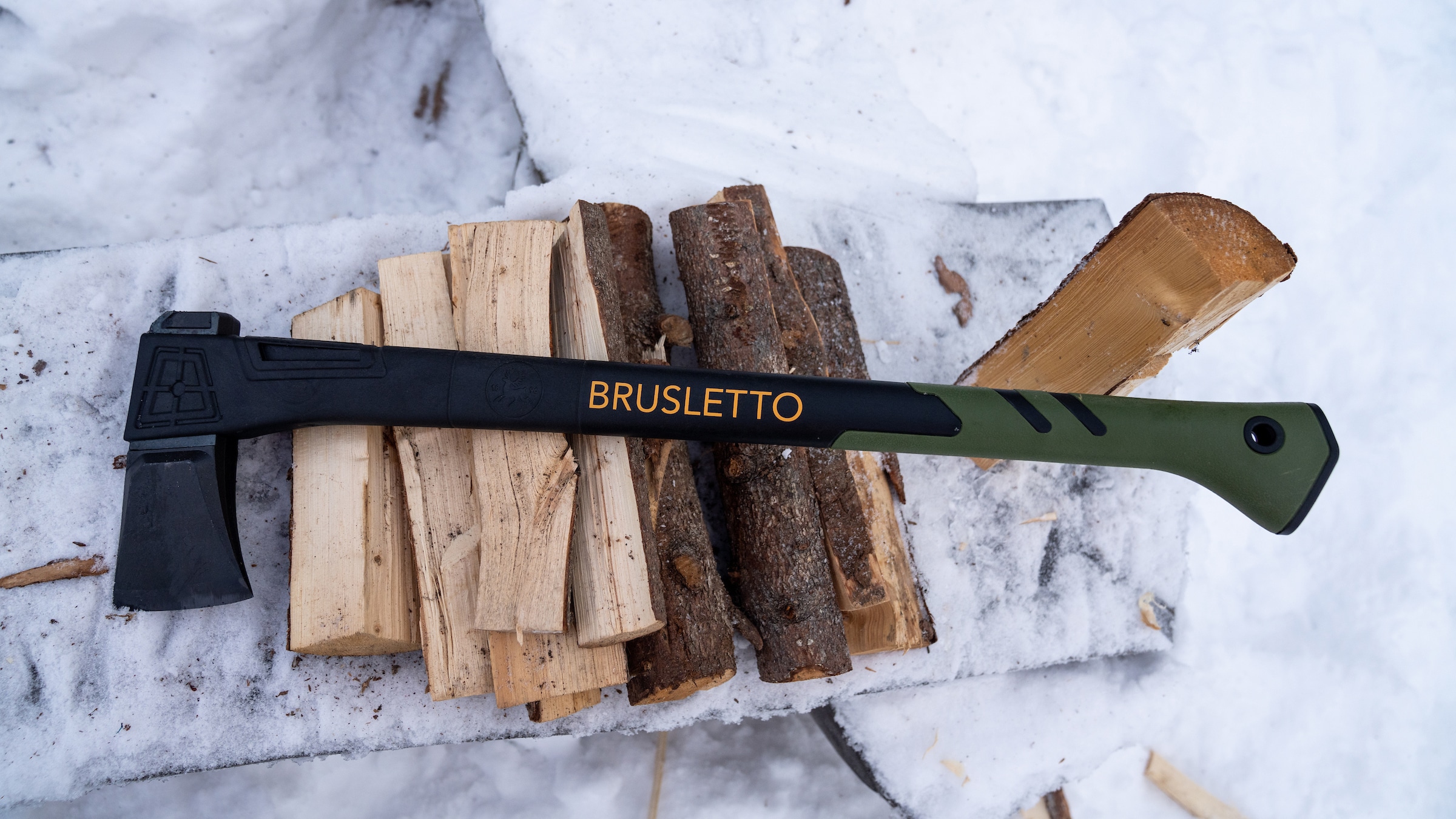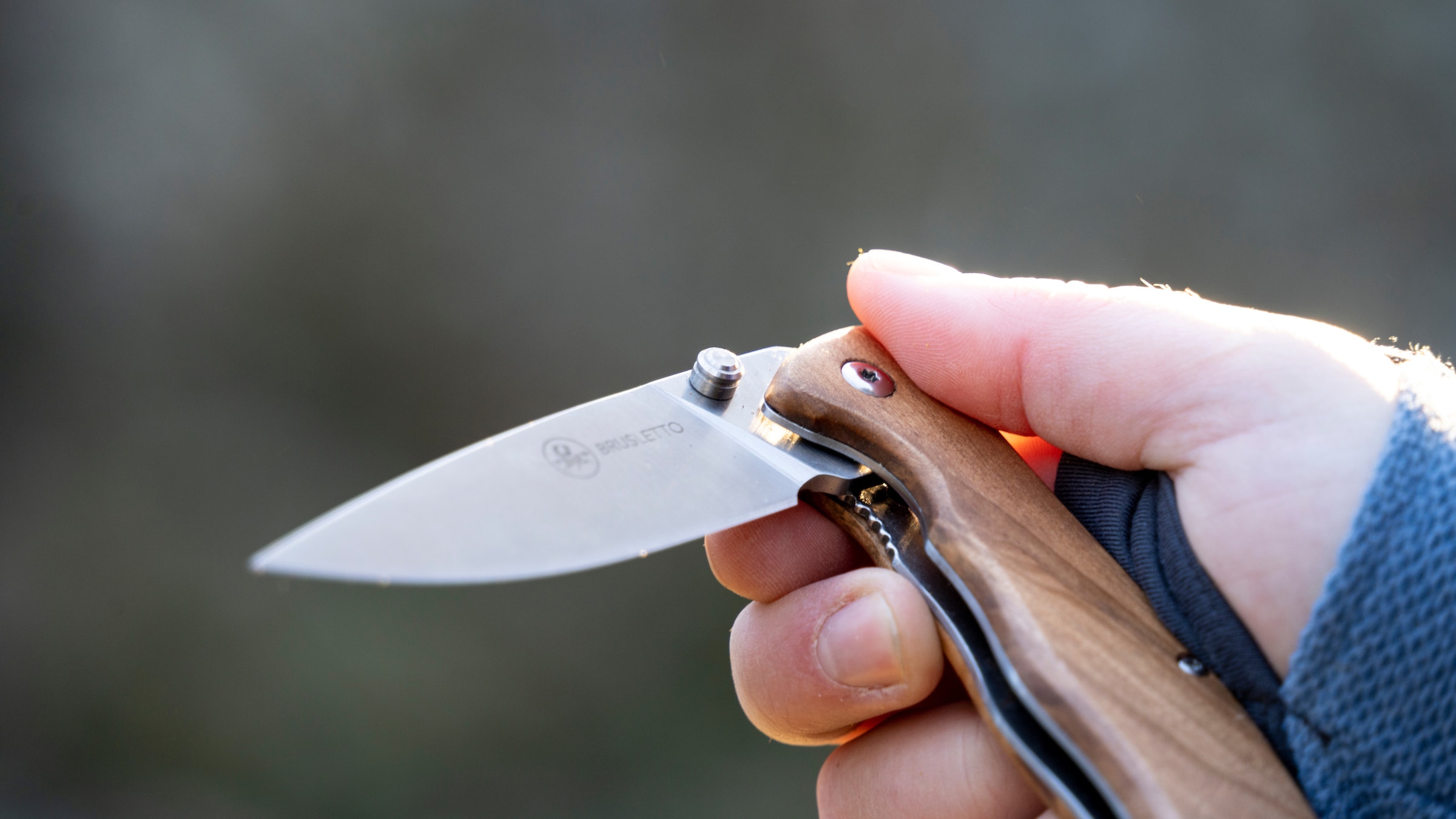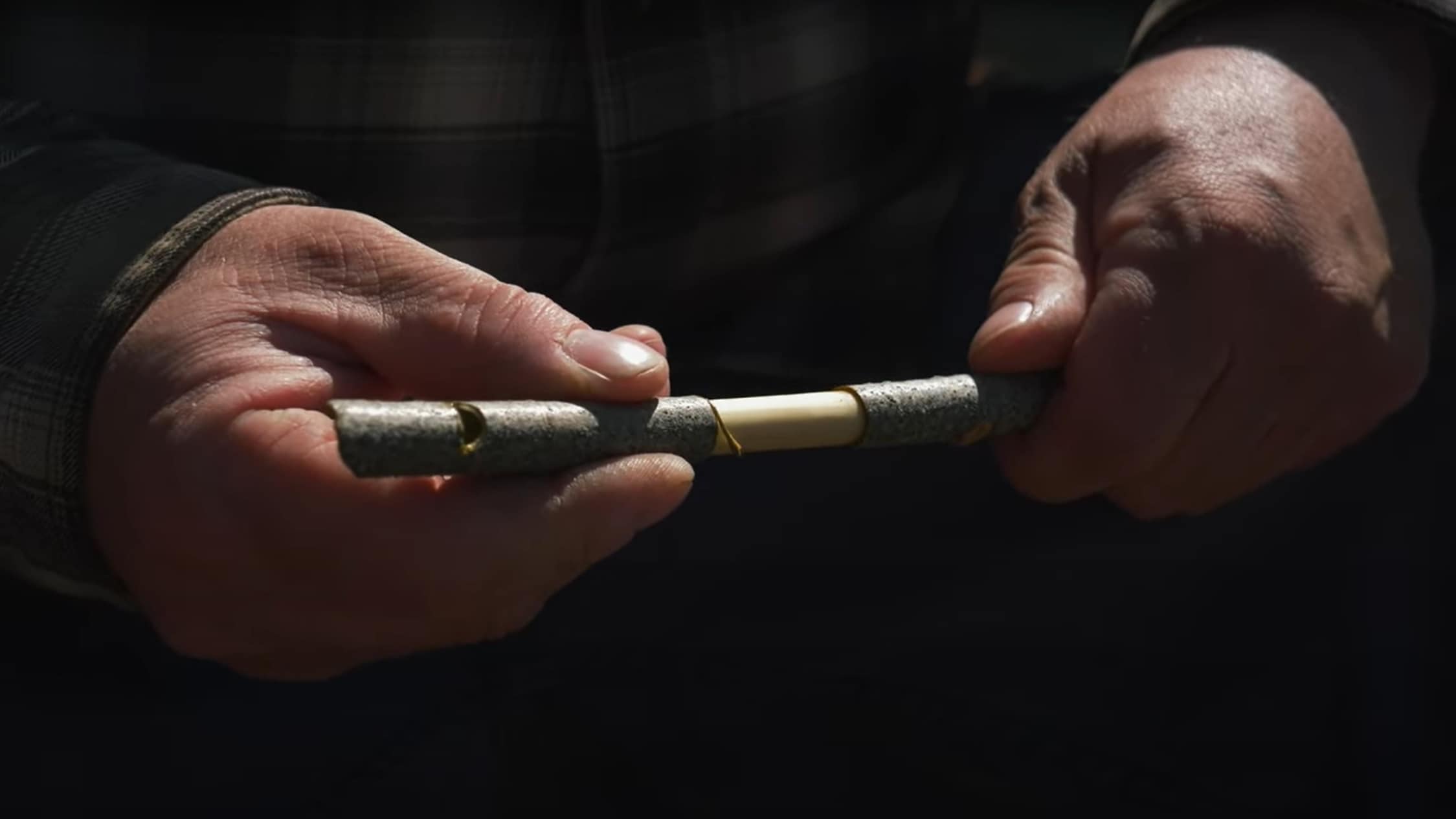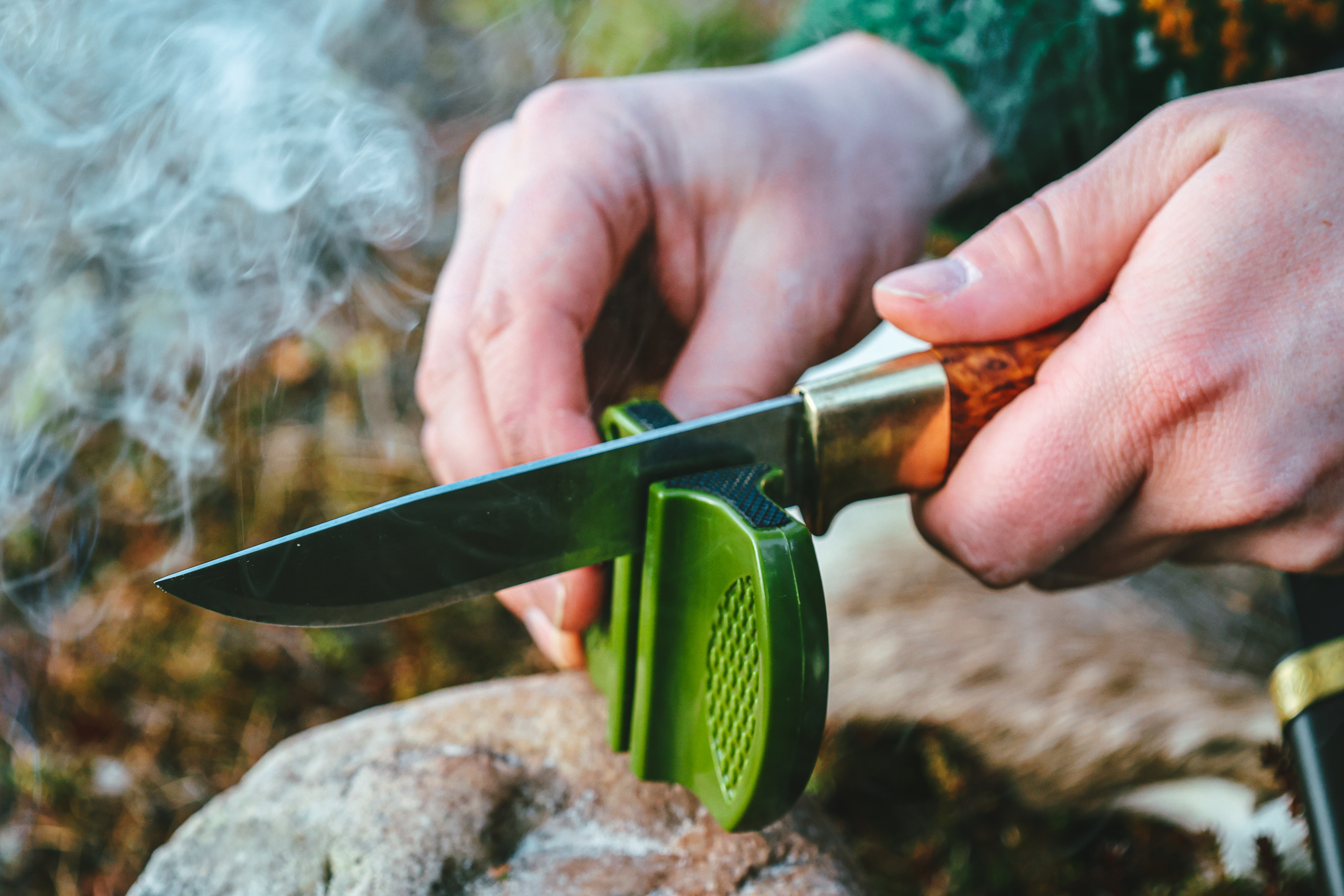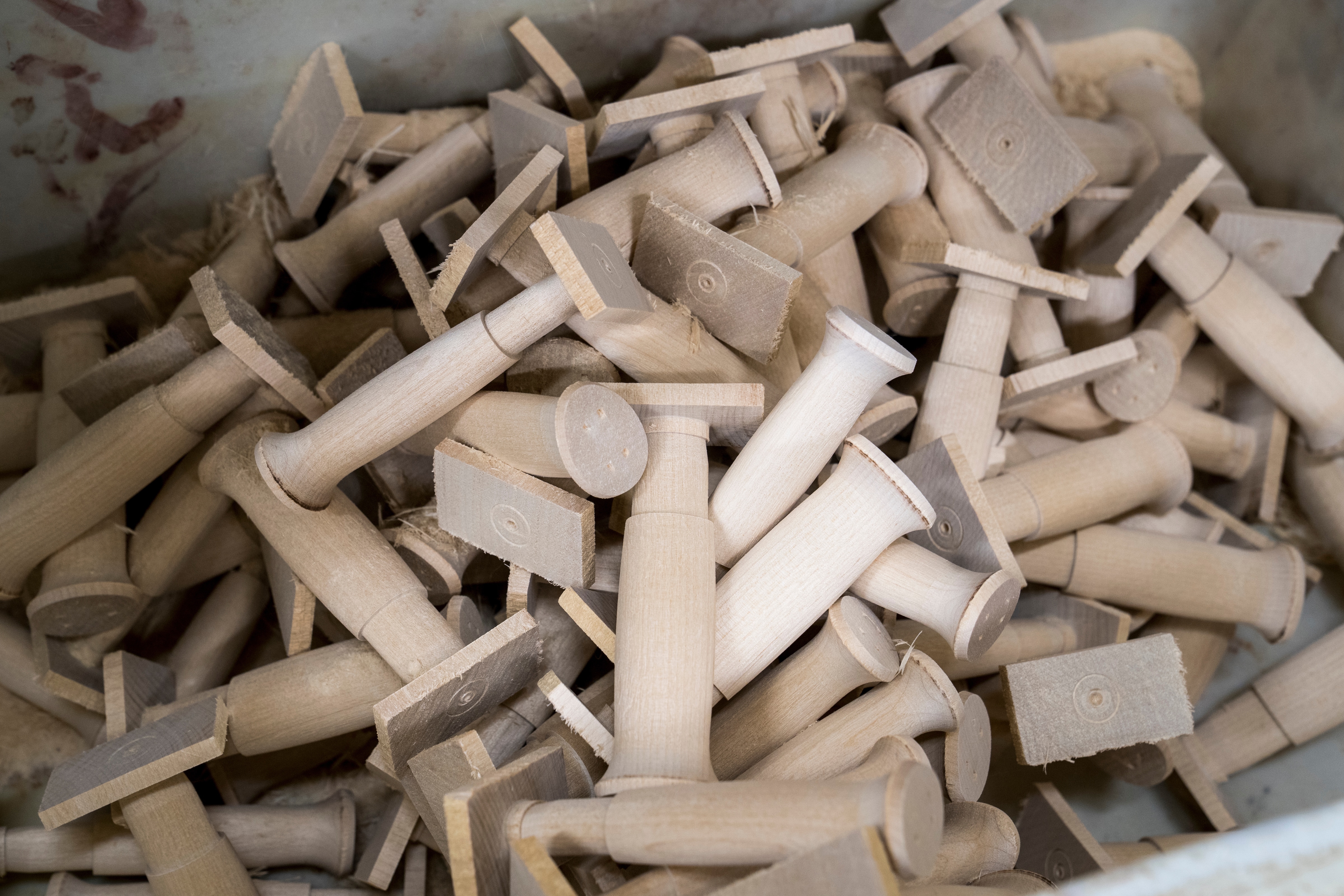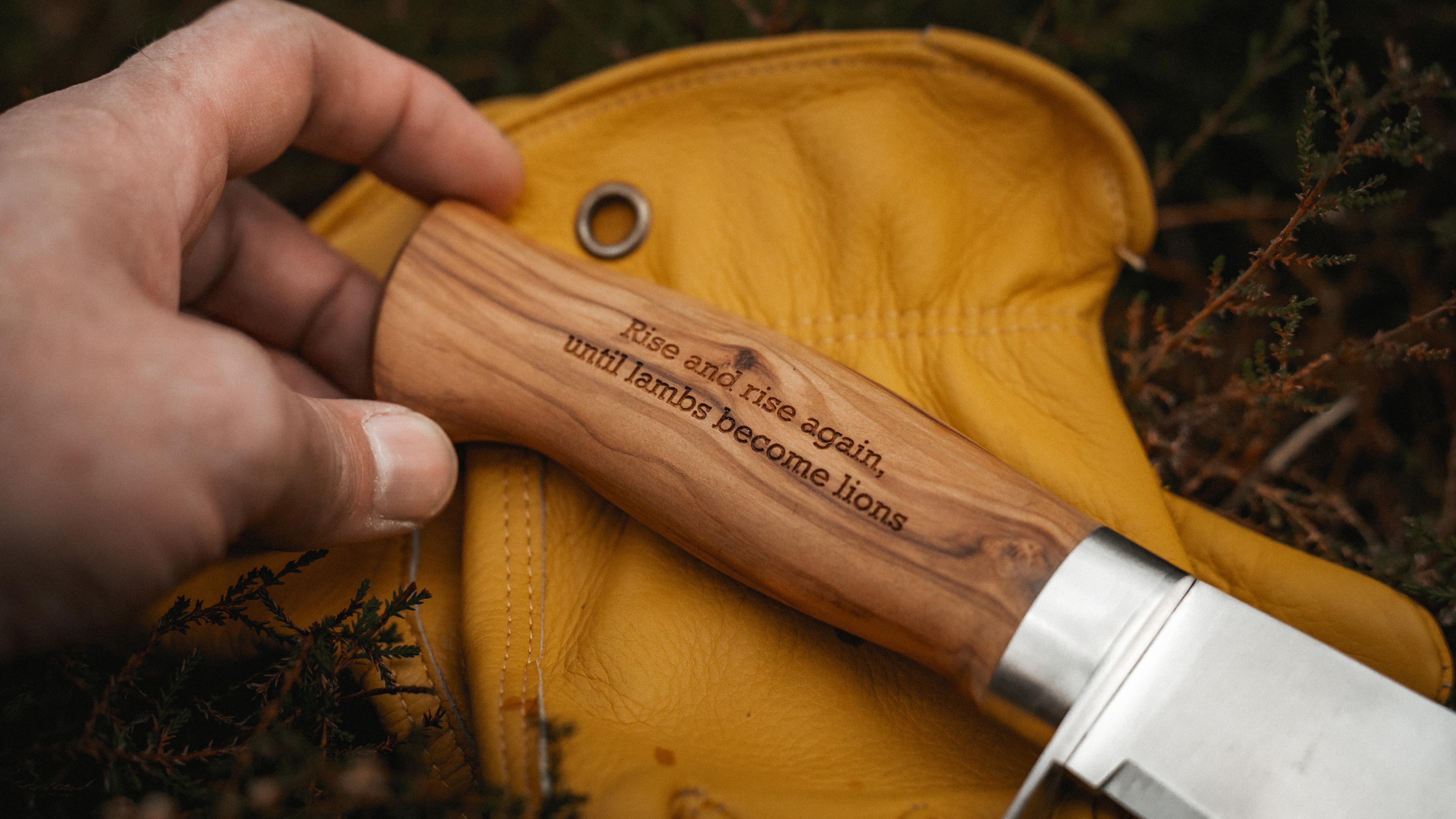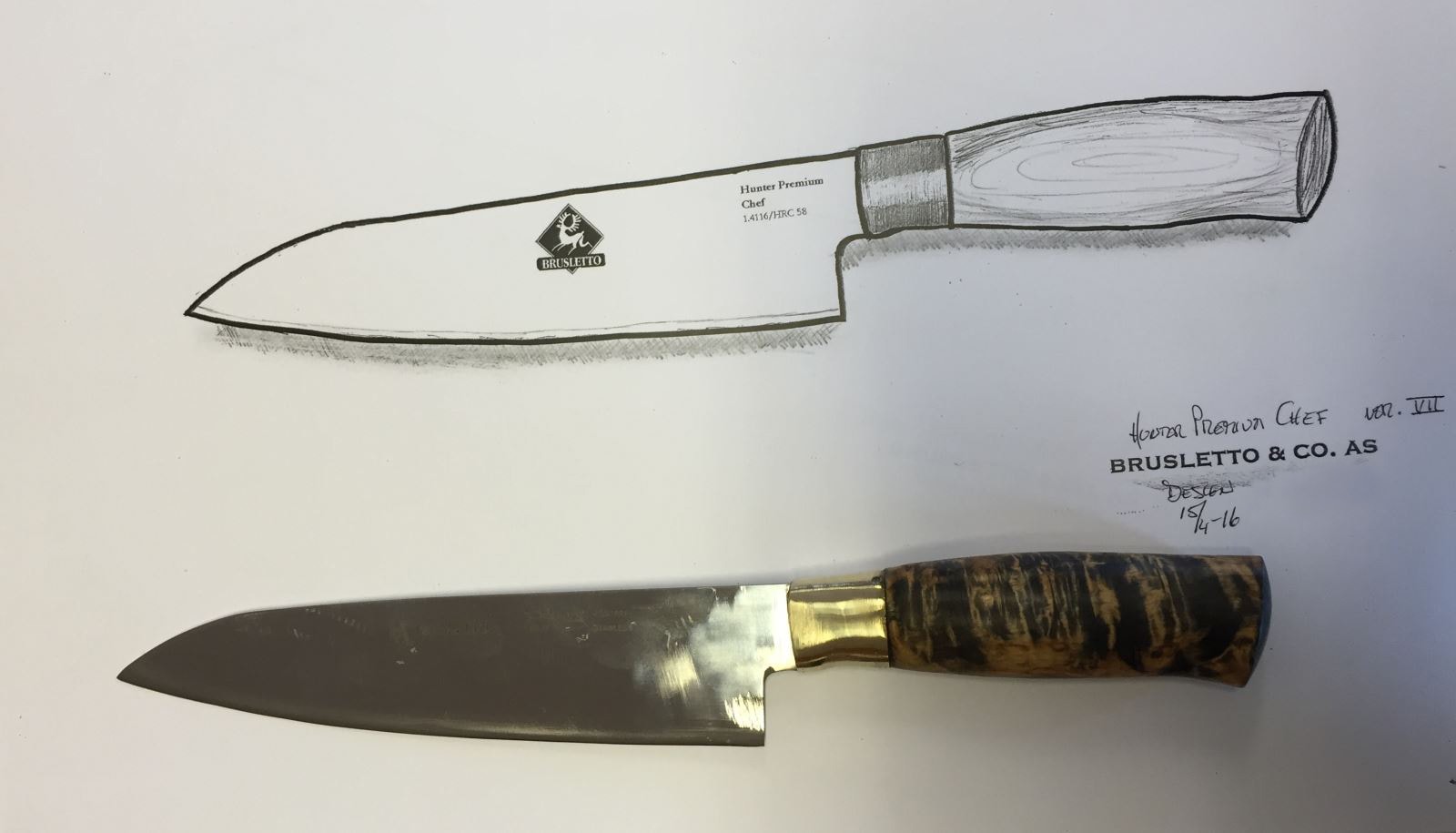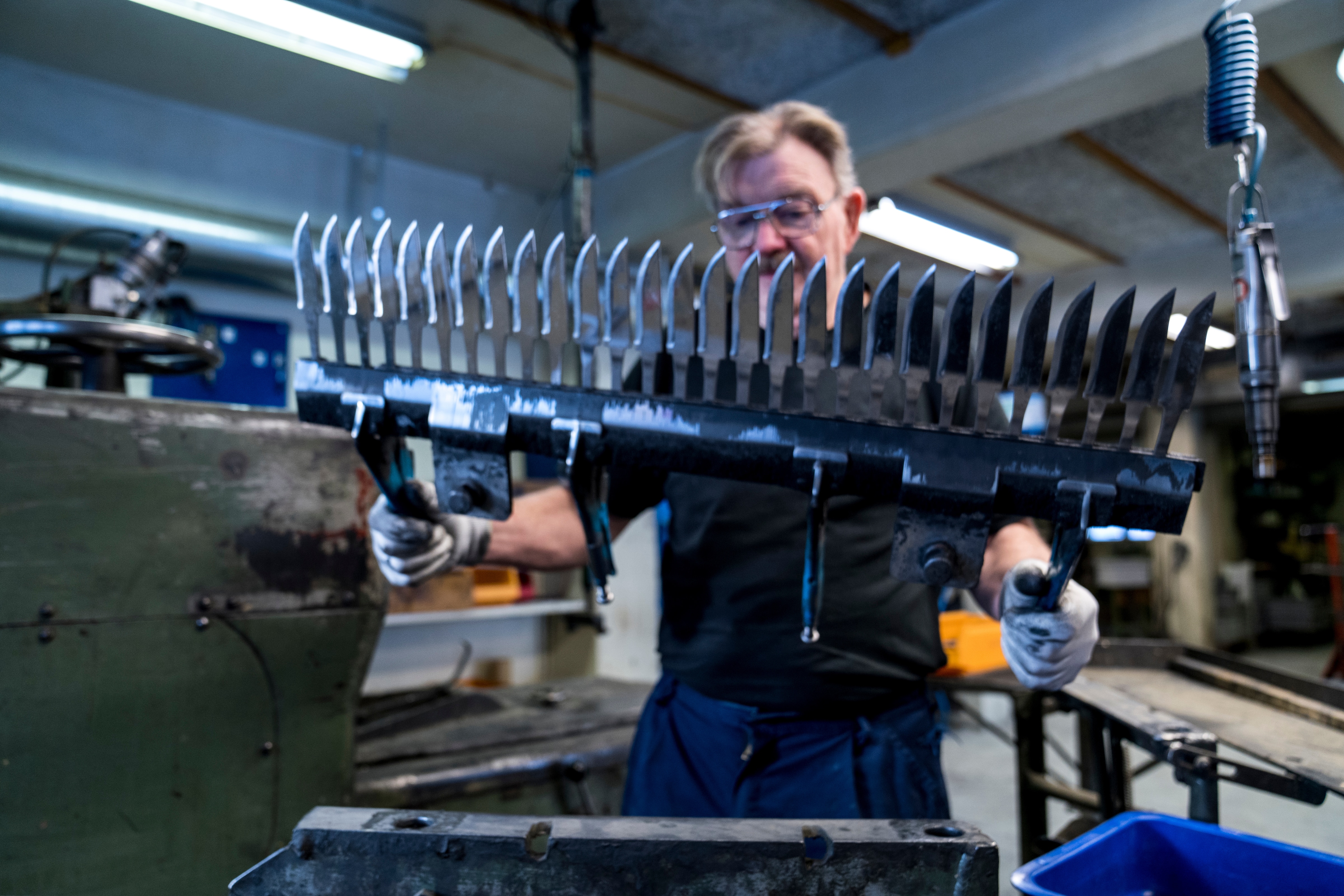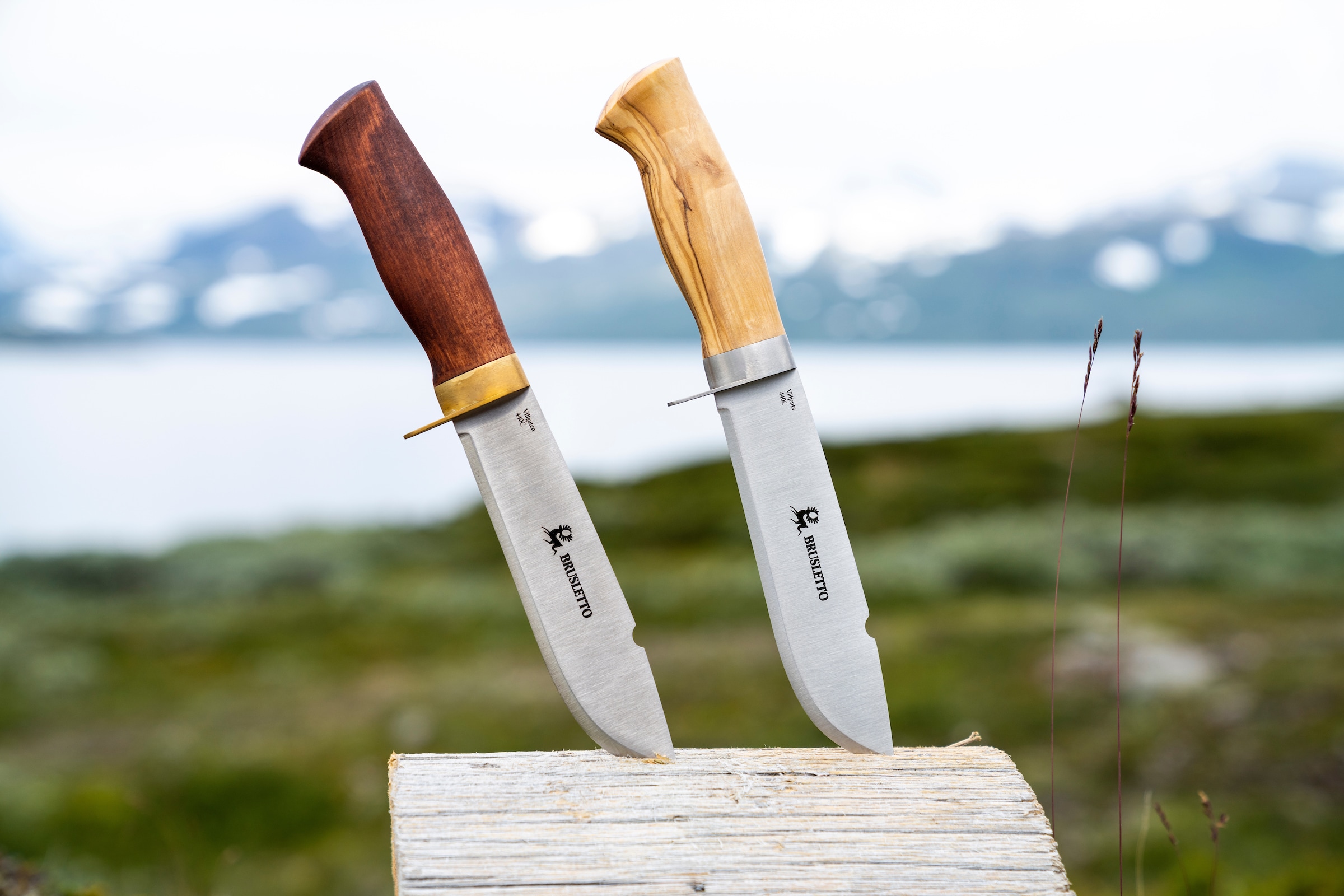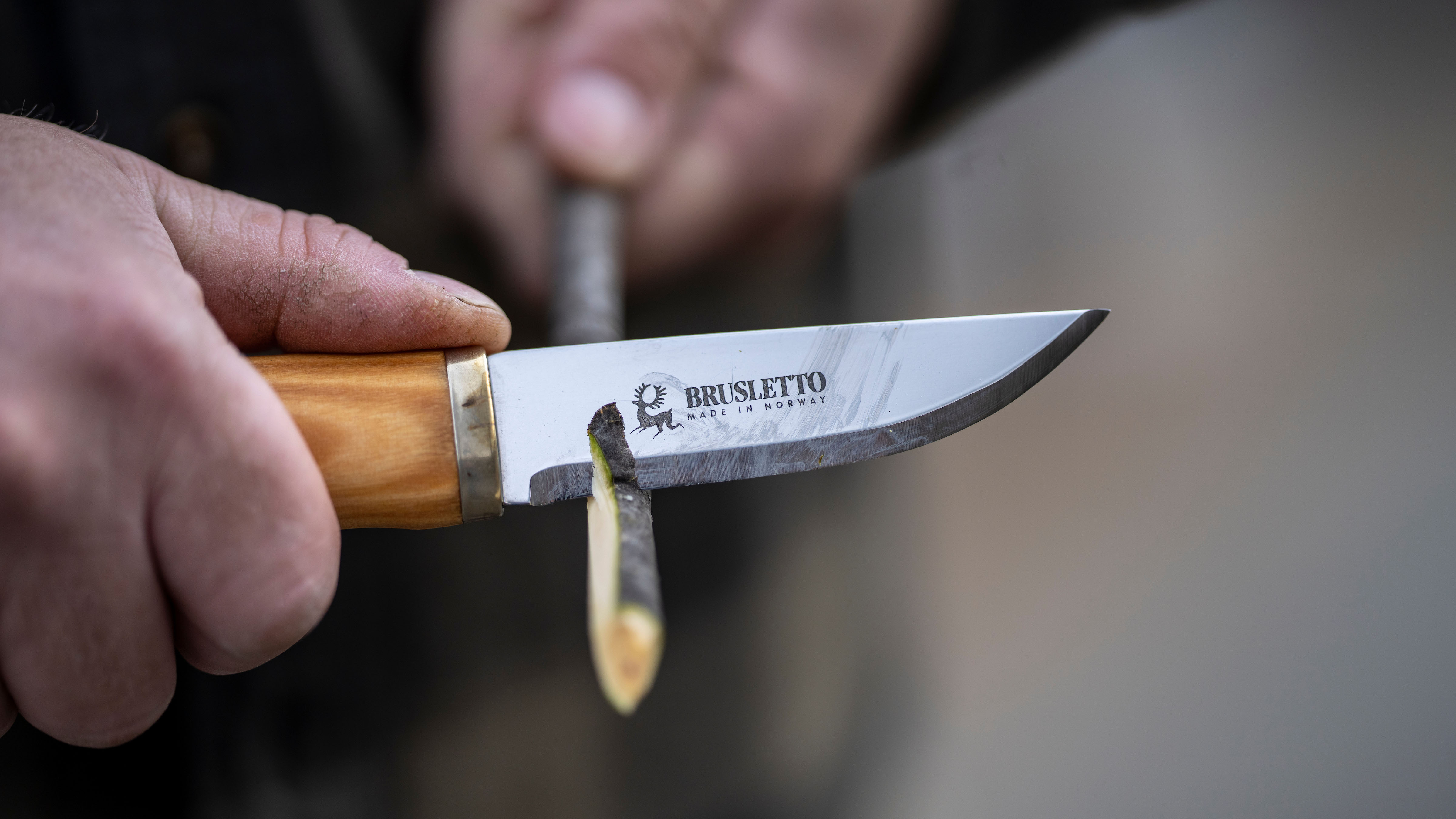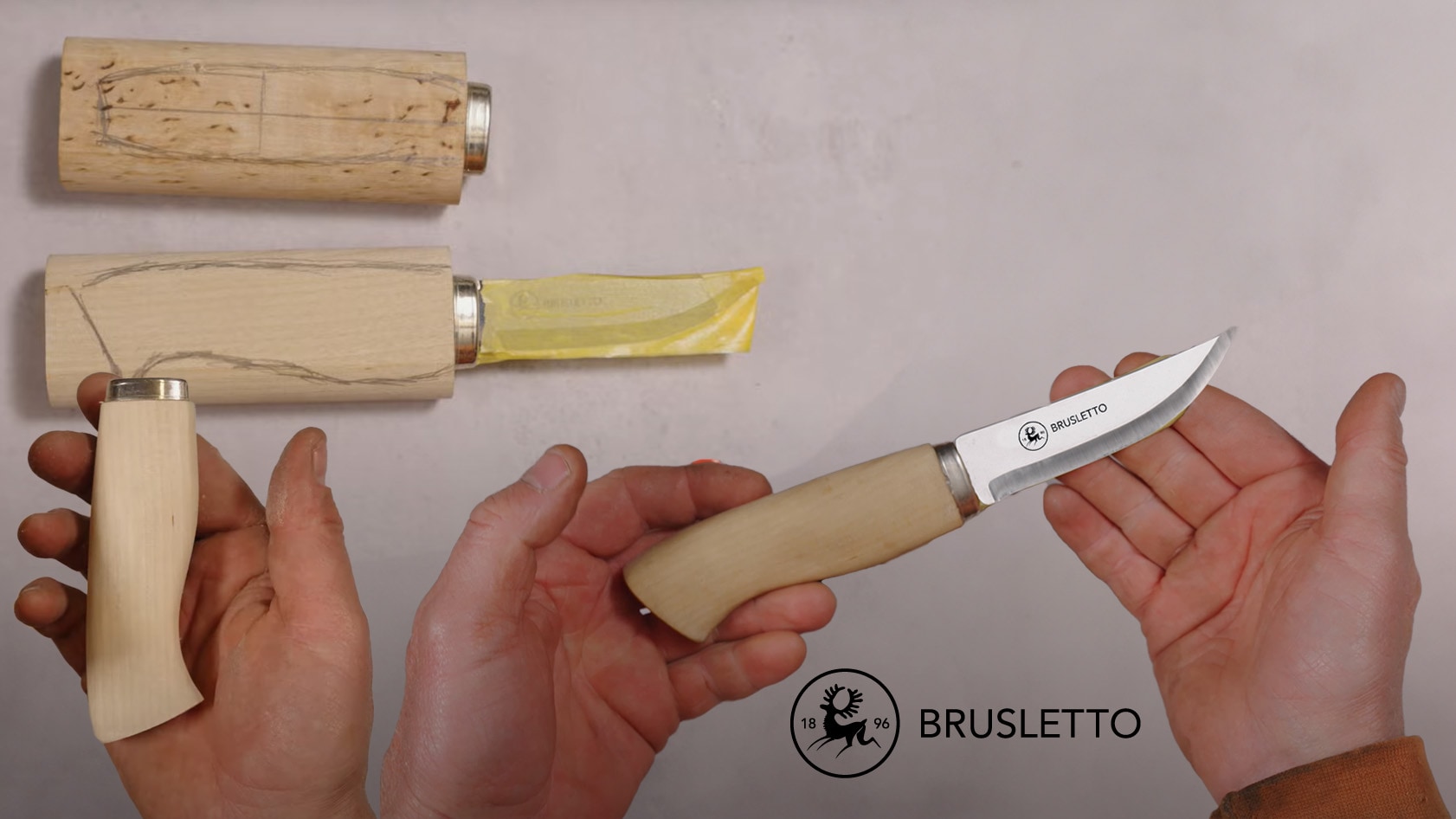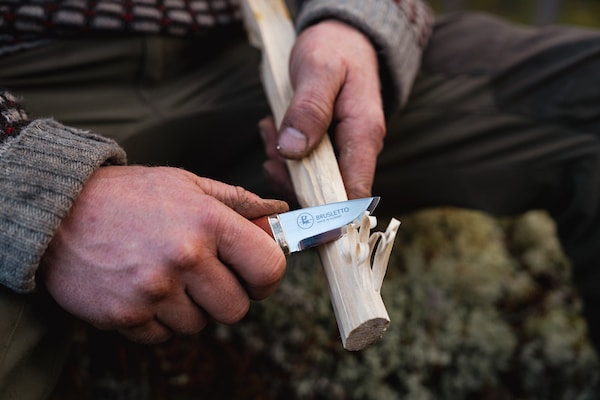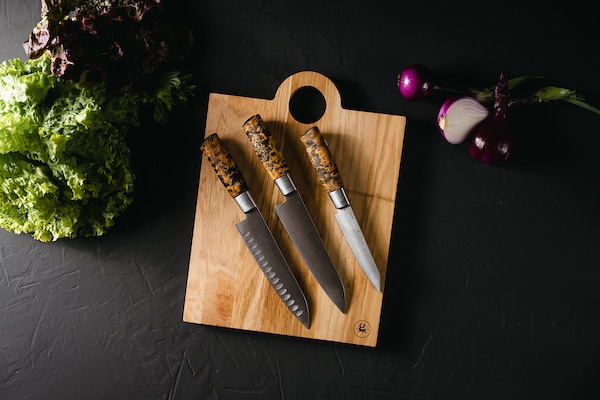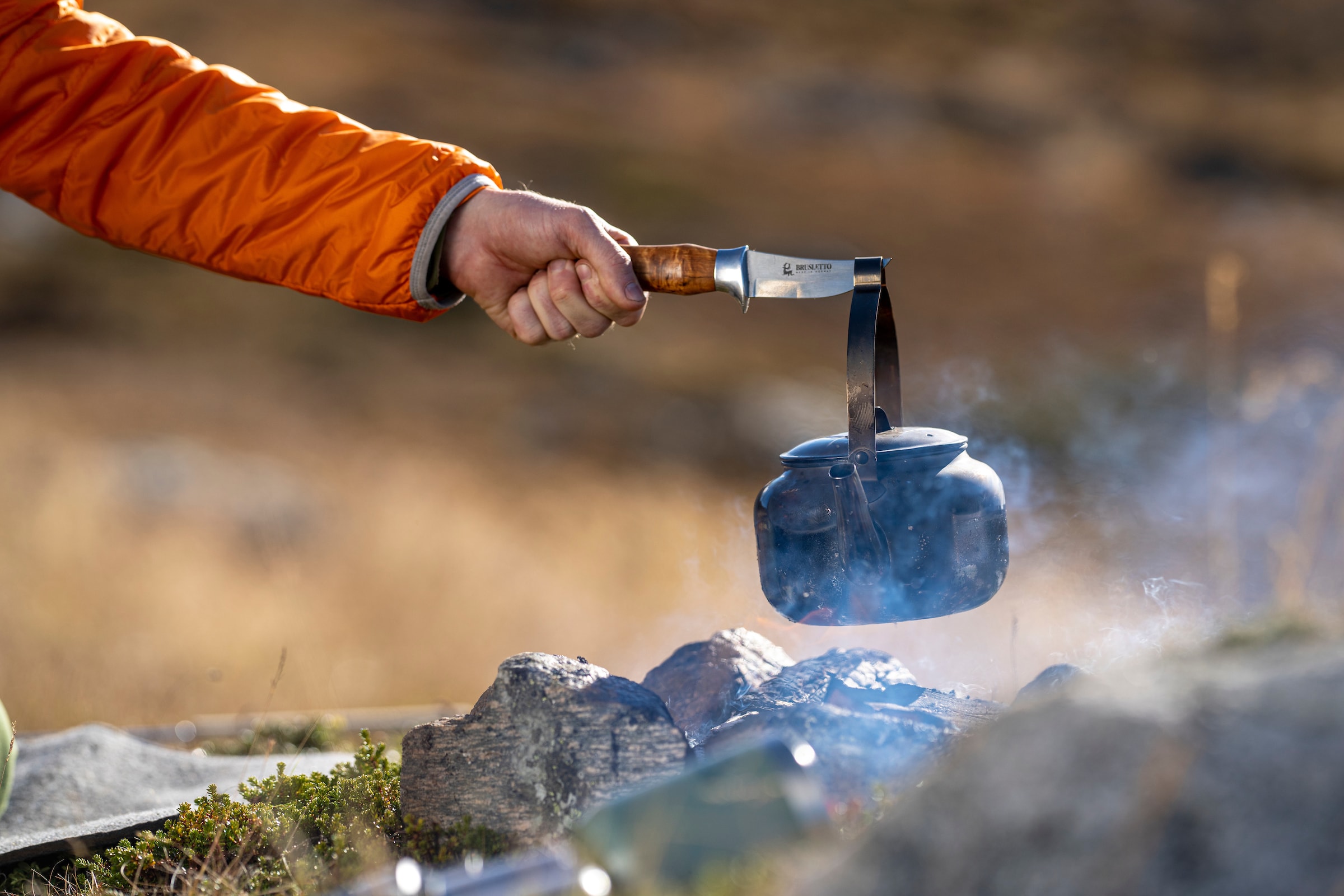Tips
Guide to Different Steel Qualities
Sandvik Steel
12C27 steel was developed by the Swedish company Sandvik Steel in the late 1970s. Sandvik Steel is a recognized producer of various types of steel. 12C27 was developed as an alternative to other knife steels sold at the time. 12C27 is a type of martensitic stainless steel, which means it is a hardenable steel that can be heat-treated to increase hardness and strength.
12C27 is a steel alloy developed by Sandvik, not a standard steel grade. The name "12C27" refers to the chemical composition of the steel, which includes 12% chromium and 0.27% carbon. The high chromium content gives the steel excellent corrosion resistance, while the carbon content provides hardness and the ability to hold a sharp edge.
In the 1980s, Sandvik Steel began producing and marketing this steel alloy, and it quickly became a popular choice among knife manufacturers. The properties of the steel made it ideal for use in knives, scissors, and other cutting tools that required sharpness and durability.
The steel alloy is also used in other products such as surgical instruments, industrial cutting tools, and more. Because it takes a long time for the steel to rust and the material remains sharp for a long time, it is also used in environments where the material/steel is subjected to high stress. Sandvik Steel 12C27 is still considered a premium steel today.
14116N
German steel 14116N is a popular knife steel used by many factories in Europe. The steel is known for its corrosion resistance and ability to hold a sharp edge. This is true stainless steel, which means it contains at least 12% chromium, which helps protect the blade from corrosion. Additionally, it contains about 0.45% carbon, which gives it the ability to be easily sharpened and hold an edge. The steel also contains molybdenum and vanadium carbides, which contribute to its toughness and hardness. The mix of high carbon along with molybdenum and vanadium carbides allows it to be ground to a razor-sharp edge and hold that edge for a long time – something that is important for sharp knives. Since the steel is softer than, for example, Sandvik Steel 14C27, the edge may dull faster compared to Sandvik Steel. But, since the knife steel is softer, it is also easier to sharpen again. With good heat treatment, knife blades of this quality will stay sharp for a long time.
440C
440C is a high-carbon steel that is often used in the production of cutlery, knives, and other cutting tools. It has high corrosion resistance, wear resistance, and strength. It is also one of the most durable steels available.
The composition of 440C steel is a mixture of iron, carbon, and molybdenum. The heat treatment of 440C steel is important to improve hardness and strength. The benefits of using 440C steel are many. It is highly resistant to corrosion and wear, making it suitable for many applications. It is also very durable and strong, making it a good choice for tools and knives that need to maintain sharpness. Additionally, it has high hardness, making it more difficult to sharpen but allowing it to retain sharpness longer than other types of steel.
3Cr13
It has the best properties for field use. Hardness and corrosion resistance determine the exact product. An increase in strength may reduce corrosion resistance. Wear resistance is proportional to the hardness of the material.
Chemical and mechanical parameters determine material choice. Both parameters provide insight into the behavior of the material. The chemical composition affects the hardness and strength of the material.
9Cr18MoV
9Cr18MoV steel is a stainless steel that has a high carbon content consisting of 9% chromium, 18% molybdenum, and vanadium. The high carbon content in this steel provides excellent edge retention, allowing for a razor-sharp edge that can last for a long time. Molybdenum and vanadium in the steel improve its hardness and wear resistance, making it very durable and long-lasting.
One of the main advantages of 9Cr18MoV steel is its corrosion resistance. The high chromium content forms a passive layer of chromium oxide that protects the steel from rust and other forms of corrosion. This makes it an ideal choice for outdoor use or in harsh environments where moisture or other corrosive substances may be present.
Despite its high hardness and durability, 9Cr18MoV steel is also relatively tough, making it less prone to chipping or cracking. This combination of hardness and toughness makes it an excellent choice for a wide range of cutting tools, including kitchen knives, pocket knives, and other cutting tools.
Böhler 690
Among the modern non-powder steels, the martensitic, cobalt-alloyed N690 steel from the Austrian-Swedish company Böhler-Uddeholm AG is currently the most popular. And in recent years, it has almost replaced its predecessor - the classic American 440C steel, which is very similar in composition but contains more molybdenum and cobalt. According to the manufacturer, the steel is intended for the production of cutting tools, including knife blades, cutting surgical instruments, rotating knives for the meat processing industry, corrosion-resistant bearings, stamps for refrigeration machines, etc. The main properties of N690 are: good strength and ductility, high wear resistance, good machinability, dimensional stability, polishability, and high corrosion resistance.
This steel is often used on folding knives as well as various full-tang knives and hunting knives. In normal climates, this steel does not rust, withstands significant stress on the edge of the blade, and can be used for chopping. This steel is also suitable for folding knives, mainly due to its high corrosion resistance and good ductility.
The carbon (C) content is about 1.08%, which increases the strength of the steel and gives the metal the necessary hardness. Carbon is the most important element in the alloy, and the amount of carbon in N690 is the golden mean for a non-powder alloy.
The amount of chromium (Cr) is about 17.30%. Chromium affects the anti-corrosion properties of steel and increases wear resistance to some extent. The amount of chromium in N690 is very high, ensuring excellent corrosion resistance.


